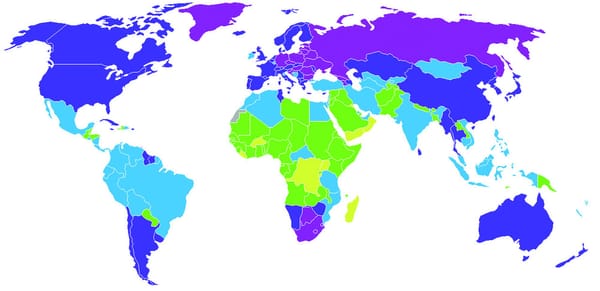The Conservatives in Europe
David Cameron is still feeling blue about events on the continent
Last week was a particularly brutal one for David Cameron and his policy on Europe. First the French president Nicholas Sarkozy told him to “shut up” over unhelpful criticisms over the Euro. To make matters worse, on his return, Mr Cameron faced an 81 member backbench rebellion over a proposed referendum on whether Britain should remain in the EU, withdraw, or take certain powers back from Brussels. This rebellion came despite a three line whip.
Britain and France have rarely seen eye to eye when it comes to long term EU strategies, and it has historically been a divisive issue within the Conservative Party. This, however, places Dave in a far worse position than he could’ve imagined.
Telling another world leader to shut up is a diplomatic rarity, particularly between two centre-right European leaders who have collaborated closely on defence deals to cut spending, and the invasion of another country (Libya). Tensions are clearly rising over the Euro crisis and with their hopes pinned on the laughable Berlusconi and dismal election prospects for Sarkozy next year, Cameron’s ‘told you so’ attitude over the Euro is not winning him any friends.
Unfortunately for the Prime Minister, he is also losing the support of Eurosceptics at home. He hardly had a cosy relationship with the backbenchers since he took power. Many blame him for failing to win the election outright. His first move was a power sharing deal with the liberal-left; anathema to many grassroots Conservatives. His second, a deal to increase frontbench influence in the backbenchers’ 1922 Committee, lost him most of their trust.
This, however, goes beyond fractured political relationships- it reflects the Prime Minister’s failure to take any decisive policy in Europe. While New Labour’s policy largely involved taking a greater role in leading Europe, the Conservative’s manifesto was about bringing powers back to Britain and reducing involvement in Europe. The manifesto stated “In future, the British people must have their say on any transfer of powers to the European Union ... any proposed future treaty that transferred areas of power, or competences, would be subject to a referendum.” Mr Cameron, before being elected, had stated that it is not right to use the whip against non-manifesto issues; MPs stood for the party with the understanding that they support the manifesto, but otherwise are independent representatives for their constituents. Not only has Mr Cameron broken this rule, but he has instructed MPs to vote against something which, in spirit, was supported by the manifesto.
Britain and France have rarely seen eye to eye...
He gives two main reasons for this- the situation has changed because they are now in coalition with the Liberal Democrats and the referendum would be a distraction at a time when they should be dealing with the Euro Crisis. Neither of these is particularly convincing. The coalition agreement would not prevent MPs voting independently. After all, they are in service to their constituency not the party. If their constituents voted for them due to their Euro-sceptic platform, they owe it to them to support the referendum. The Prime Minister may oppose the motion, but using a three line whip (which could have them removed from the party), puts them in a very unfair position. The fact that they did not have a majority meant it was unlikely to pass anyway, making the whip a stupid political move, as it would never be able to become a ‘distraction’. In any case, Cameron’s policy over the Euro Crisis- pointing fingers without making any helpful suggestions- means Britain is fast becoming irrelevant to the Euro Crisis in the eyes of many European leaders.
Thanks to the Prime Minister’s policy (or lack thereof), Britain is now in a position where it is losing greater power to Brussels while becoming an increasingly peripheral and unimportant member of the union.






